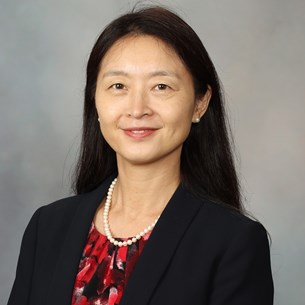Meeting
2021 ASCO Annual Meeting

Washington University School of Medicine in St. Louis, St. Louis, MO
Jian Li Campian , Christopher Abraham , Jingqin Luo , Grayson Talcott , Ruth Katumba , Albert H Kim , Gavin P. Dunn , George Ansstas , Tanner Michael Johanns , Matthew A Ciorba , Milan G Chheda , Jiayi Huang
Background: Recurrent glioblastoma (rGBM) after chemoradiotherapy has a dismal outcome with very limited treatment options. Addition of reirradiation to bevacizumab appears to improve progression-free survival (PFS) but does not improve overall survival (OS). Immune checkpoint inhibitors of programmed cell death-1 (PD-1) pathway appear to have limited single-agent activity for rGBM due to its immunesuppressive microenvironment. Indoleamine 2,3 dioxygenase 1 (IDO1) is an inducible and rate-limiting enzyme that catabolizes tryptophan (Trp) into kynurenine (Kyn). IDO1 is over-expressed in 50̃90% of GBM patients, and high IDO1 levels correlate with reduced OS. Epacadostat is a highly potent and selective oral inhibitor of IDO1 and may increase tumor sensitivity to anti-PD-1 blockade. Retifanlimab is a humanized anti-PD-1 monoclonal antibody directed against PD-1. The purpose of this study is to evaluate the safety and efficacy of combining retifanlimab plus or minus epacadostat with reirradiation and bevacizumab for rGBM patients. Methods: This is an open-label nonrandomized phase II study of two sequential cohorts for bevacizumab-naïve adults with rGBM: retifanlimab + bevacizumab+ radiation (cohort A), and retifanlimab + epacadostat + bevacizumab + radiation (cohort B). Each cohort will enroll 24 evaluable patients. Key eligibility criteria include candidates for reirradiation and bevacizumab, age ≥ 18 years, Karnofsky performance status ≥ 60%, and dexamethasone dose ≤ 4 mg/day. The primary endpoint is OS. Secondary endpoints include PFS, neurologic functions, and toxicity. The correlative endpoints include studies assess the anti-glioma immune response, serum Kyn/Trp ratio, and RNA expression of IDO1 and PD-L1 from available tissue. The trial is actively enrolling. At the time of abstract submission, 16 of the planned 24 patients in Cohort A have been enrolled. Clinical trial information: NCT03532295
| Treatment | Dose | |||
|---|---|---|---|---|
| Retifanlimab | Epacadostat | Bevacizumab | Radiation | |
| Cohort A | 500 mg IV Q4W | -- | 10 mg/kg IV Q2W | 3.5 Gy x 10 QD |
| Cohort B | 500 mg IV Q4W | 600 mg PO Twice daily | 10 mg/kg IV Q2W | 3.5 Gy x 10 QD |
Disclaimer
This material on this page is ©2024 American Society of Clinical Oncology, all rights reserved. Licensing available upon request. For more information, please contact licensing@asco.org
2021 ASCO Annual Meeting
Poster Session
Central Nervous System Tumors
Central Nervous System Tumors
Primary CNS Tumors–Glioma
NCT03532295
J Clin Oncol 39, 2021 (suppl 15; abstr TPS2070)
10.1200/JCO.2021.39.15_suppl.TPS2070
TPS2070
Online Only
Abstract Disclosures
2023 ASCO Annual Meeting
First Author: Shuo Li
2023 ASCO Annual Meeting
First Author: Jianqing Zhu
2022 ASCO Annual Meeting
First Author: Jian Li Campian
2023 ASCO Annual Meeting
First Author: Samuel Aaron Goldlust